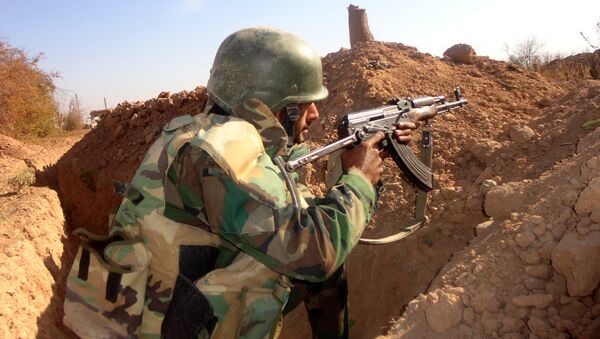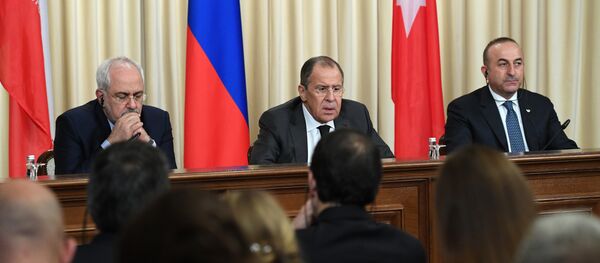The talks brokered by Russia, Iran and Turkey brought together the representatives of the Syrian government and the armed opposition groups for the first time since the beginning of the Syrian war in 2011.
"I think, the Astana track having Russia, Turkey and Iran is very important, because in many parts of Syria, where the civil war is raging those are the main influencers on the ground," McGurk said.
McGurk's comment came in response to UN Special Envoy for Syria Staffan de Mistura’s remark on the role of the White House in tackling the Syrian crisis, made at the Munich Security Conference panel on Syria.
De Mistura said the new US administration was revising its operations in Syria. "Potential inclusion of a new type of development between Russia and the US on the Syrian file and how to expand the ceasefire into something much more concrete plus fighting Daesh depends on knowing where the US is," he said.
McGurk, who represents the White House at the coalition, argued the UN should not expect that Washington would come up with a one-size-fits-all solution.
The deescalation in Syria might lead to Syrian conflict resolution, but it should be reinforced, he said. "There might be some opportunities simply because of the deescalatory cycle that we have seen, but we really would after reinforce this."
The Syrian ceasefire that came into force on December 30 is backed by Russia and Turkey, and has been holding up in general, despite continued reports of violations. The UN Security Council passed a resolution in December supporting the effort.




